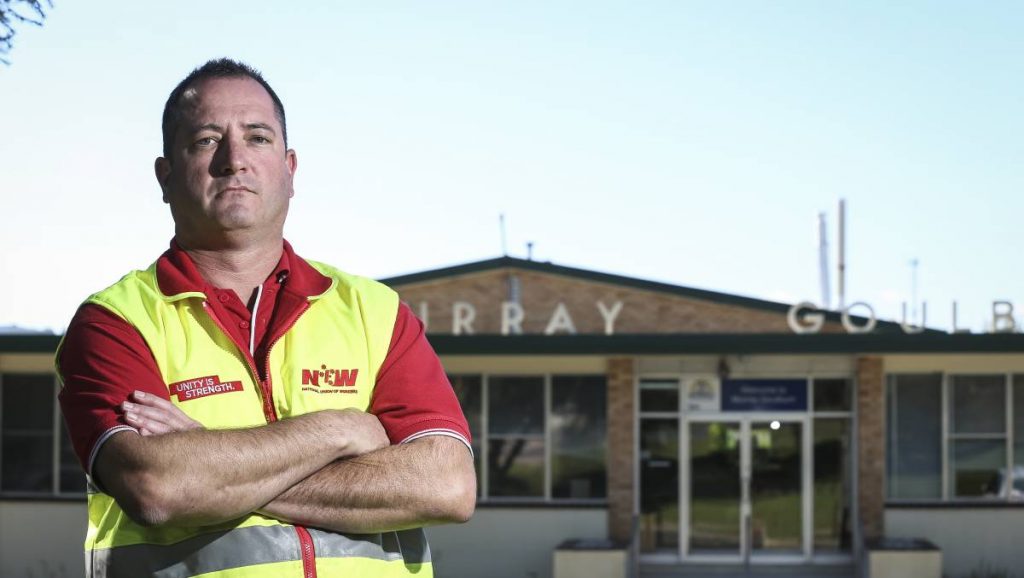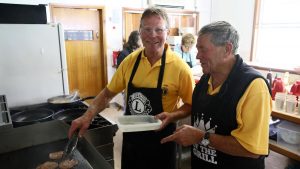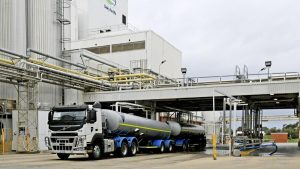
Mr Smith is the national dairy coordinator for the United Workers Union (UWU), which represents the workers who turn milk into dairy products at processing factories.
And he’s worried.
“We need to make sure that we future proof the dairy industry,” he said.
“If we leave it go as it is, there isn’t going be one – it’ll be the next car industry.
“We’ve really got to work together to make sure it’s sustainable for future generations.”
The industry has been building just such a plan – the Australian Dairy Plan (ADP) – designed to guide it through the crisis it found itself in over the last few years towards prosperity.
And, to that end, the UWU made a submission to the ADP last August after an invitation from independent chair, John Brumby.
The union’s heard nothing since.
“Not once is the word worker or union mentioned in the draft Australian Dairy Plan,” Mr Smith said.
“That’s not fair and it’s not a true reflection of the Australian dairy industry.
“Workers need to be part of it as well as government, processors and farmers.”
But the UWU was undeterred, consulting with members and farmers to develop its own plan for the industry.
“A big part of that is is a sustainable milk price,” Mr Smith said.
“Without farmers having confidence to invest in the dairy industry, there is no dairy industry, there are no processing plants.
“When big companies and multinationals decide to close a plant or mothball it, that does have a devastating effect on the community because, often, it is the the pillar of the whole community in a small regional towns.”
“The whole community has a stake in this.
“When we’re able to go out again, we want to hold forums across the regions where we will invite communities, families, farmers, shop owners, school teachers, doctors and politicians to discuss our plan.”
In fact, the UWU planned to include the requirement for a fair farmgate milk price in enterprise bargaining negotiations.
“We have in the past, and will in the future, make sure that when we’re doing our bargaining, make sure farmers are paid the appropriate rate,” Mr Smith said.
“It’s not what they’re being paid now – the system is not working for farmers – and that doesn’t mean it should come at the cost of the workers in the processing plant.
“There is absolutely an opportunity for everyone to share in the industry and farmers should get their fair cut.
“They’ve got record prices, depending what areas the farmers are in, but they’re also paying unheard-of prices for feed and water.”
Mr Smith said the retail price for milk should increase but it was critical that consumers had confidence any extra money would go to farmers rather than supermarkets.
It also wanted to see a greater emphasis on promotion of the industry, sustainability initiatives and, crucially, a requirement that any dairy processing plants continue to produce dairy, irrespective of ownership changes.
A spokesperson for the Australian Dairy Plan said workers were “crucial stakeholders in the development of Dairy Plan”.
“John Brumby met with the Victorian Secretary of the NUW (now UWU ) in early August 2019 and then attended their annual delegates meeting in October to listen to dairy workers and talk about the key directions of the plan,” the spokesperson said.
“We welcomed their submission and many of its key themes are incorporated in the plan, including the fundamental importance of dairy to regional economies, the need for skilled and high quality manufacturing jobs, ensuring the long term sustainability of the industry and working to attract available federal government funding to support the export potential of dairy as part of the government’s target to lift agricultural production to $100 billion by 2030.
“Their views are not individually referenced in the draft dairy plan (as is the case with most people and organisations who have been involved in the consultation process, including the 1,500 people who took part in regional workshops) but their contribution is reflected in the scope of the plan.
“With work on the ADP now in its final stages, all feedback and submissions are being reviewed to ensure the plan fully addresses all issues.”

























